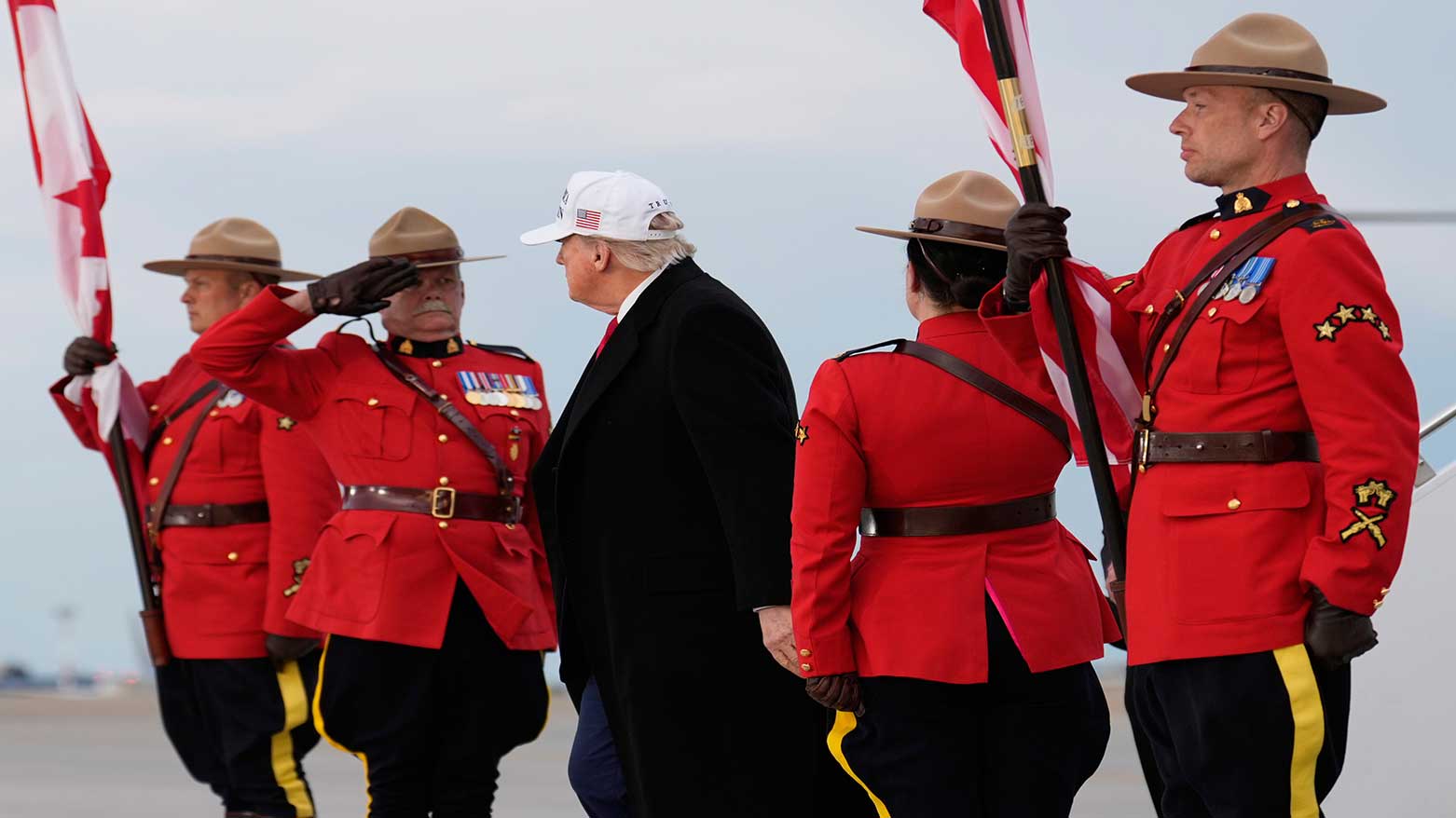G7 Summit Kicks Off in Canada Amid Israel-Iran Crisis and Trade Turmoil
A U.S. official told the AP that Trump recently vetoed an Israeli proposal to assassinate Iran’s Supreme Leader Ayatollah Ali Khamenei, highlighting just how far Israeli strategists were willing to go.

ERBIL (Kurdistan24) — Leaders of the world’s most powerful democracies gathered Sunday in the Canadian Rockies for a high-stakes G7 summit, shadowed by escalating conflict between Israel and Iran, as well as deepening trade disputes involving the United States. According to the Associated Press (AP), the rapidly evolving geopolitical climate, coupled with U.S. President Donald Trump's unpredictable approach, threatens to overshadow the summit's intended agenda.
The meeting comes as tensions surge in the Middle East following Israeli strikes on Iranian military targets and Tehran’s retaliatory moves—an exchange that caught many global leaders off guard. In a revealing development, a U.S. official told the AP that Trump recently vetoed an Israeli proposal to assassinate Iran’s Supreme Leader Ayatollah Ali Khamenei, highlighting just how far Israeli strategists were willing to go.
British Prime Minister Keir Starmer, who has been in contact with both Trump and Israeli Prime Minister Benjamin Netanyahu, confirmed that de-escalation efforts are underway. “I expect intense discussions to continue at the summit,” Starmer said, emphasizing the crisis’s urgency.
Canadian Prime Minister Mark Carney, hosting the summit, has opted to scrap the traditional joint communique at the end of the gathering—an acknowledgment of widening divisions among G7 members, particularly over trade and diplomacy.
Trump Looms Large Over Summit Dynamics
President Trump arrived in Alberta Sunday evening, donning his signature “Make America Great Again” cap, and was greeted by ceremonial Mounties. According to AP, Trump’s erratic statements—including threats to annex Canada as the “51st state” and take over Greenland—are contributing to the summit’s highly volatile atmosphere. French President Emmanuel Macron, en route to Canada, made a symbolic stop in Greenland, where he defiantly stated, “Greenland is not to be sold, not to be taken,” earning applause from locals.
Trump is scheduled to hold a bilateral meeting with Carney on Monday before the summit’s formal proceedings begin. His aggressive posture on trade—especially the imposition of tariffs—has unsettled many allies, and the risk of the summit devolving into fragmented, one-on-one meetings rather than unified dialogue remains high.
When asked if new trade deals would be announced, Trump told reporters: “All we have to do is send a letter: ‘This is what you’re going to have to pay.’” According to AP, such statements reflect the U.S. President’s transactional approach to diplomacy, often marked by pressure tactics.
Summit Agenda Expands Beyond G7
Carney has extended invitations to several non-G7 leaders, including those from India, Ukraine, Brazil, South Africa, South Korea, Australia, Mexico, and the UAE. The expanded format is aimed at encouraging broader engagement on global issues like security, climate, and economic cooperation, though avoiding punitive U.S. tariffs will remain a key concern.
One anticipated side meeting involves Ukrainian President Volodymyr Zelenskyy and Trump—a potentially tense reunion given their last contentious Oval Office encounter. The ongoing war in Ukraine is expected to be a major topic, as a support for Kyiv amidst shifting global attention.
Starmer Navigates Diplomatic Tightrope
Prime Minister Starmer, seeking to balance his nation’s interests while maintaining historic ties with Canada, finds himself walking a fine line. While he has courted Trump in hopes of securing favorable trade terms—especially following the announcement of a new U.S.-U.K. trade deal last month—his reluctance to directly rebuke Trump’s “51st state” comments has drawn criticism.
Asked by the AP if he had confronted Trump over the remarks, Starmer responded, “I’m not going to get into the precise conversations I’ve had, but let me be absolutely clear: Canada is an independent, sovereign country and a much-valued member of the Commonwealth.”
Meanwhile, German officials stressed that this summit should not be interpreted as “six against one,” noting internal disagreements within the G7 itself. Still, they admitted that Trump remains the greatest wildcard.
As world leaders prepare for what promises to be a complex and unpredictable summit, hopes for progress on global issues are tempered by the looming shadow of Trump’s diplomacy and the specter of war in the Middle East.